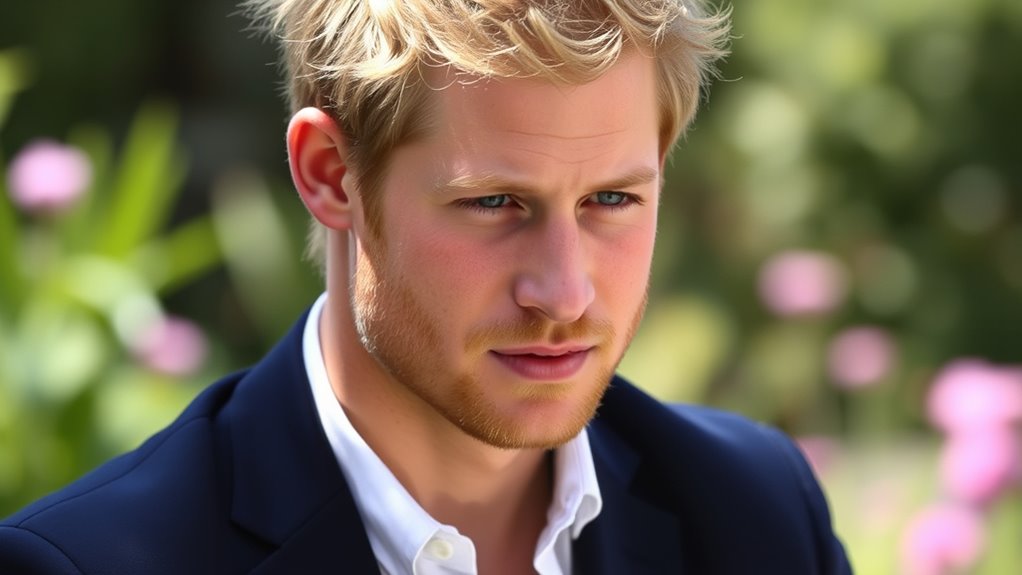Prince Harry, Duke of Sussex, is a dedicated philanthropist and former British Army officer. You’ll find him championing mental health through campaigns like Heads Together, supporting wounded veterans via the Invictus Games, and advocating for social justice. After stepping back from royal duties, he launched initiatives with his Archewell Foundation to create lasting social change. If you want to uncover more about his life, military service, and global impact, there’s much more to explore.
Key Takeaways
- Prince Harry, Duke of Sussex, served in the British Army and supported veteran rehabilitation through initiatives like the Invictus Games.
- He founded the Invictus Games Foundation to promote resilience and social reintegration for wounded servicemen and women.
- Harry is a prominent mental health advocate, co-launching the Heads Together campaign to end stigma and encourage open conversations.
- He and Meghan Markle established the Archewell Foundation, focusing on mental health, social justice, and humanitarian projects globally.
- As a philanthropist, he actively supports veteran welfare, mental health awareness, and international social development initiatives.
Early Life and Family Background
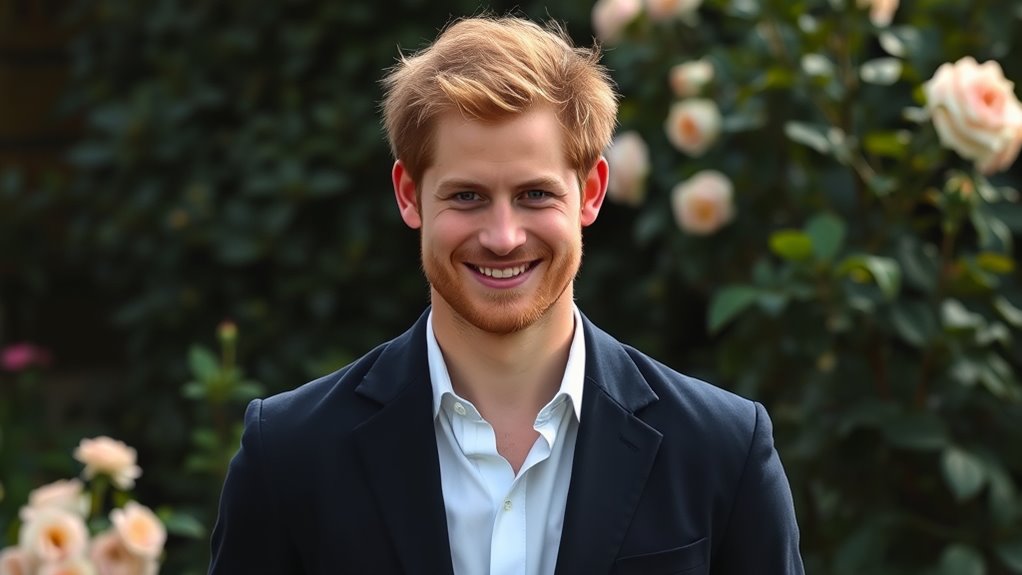
Prince Harry was born on September 15, 1984, at St Mary’s Hospital in London. His full name is Henry Charles Albert David. As the second son of Prince Charles, now King Charles III, and Diana, Princess of Wales, he’s part of the British royal family. He has an older brother, William, Prince of Wales, and is currently fifth in line to the throne. Harry was christened by the Archbishop of Canterbury at Windsor Castle on December 21, 1984. His childhood was marked by high-profile family events, including his parents’ divorce in 1996 and his mother’s tragic death in a car accident in 1997, when he was 12. Growing up in the spotlight, he experienced intense media scrutiny and personal loss early in life. He attended several schools in London before moving to Ludgrove School and later Eton College, where he developed an interest in sports and outdoor activities. Additionally, his experiences with media attention and personal loss have contributed to his public advocacy and charitable work.
Educational Journey and Personal Interests

Harry’s educational journey reflects a focus on leadership, discipline, and real-world experience rather than traditional academia. You attended Wetherby School in London, following your older brother, then graduated from Eton College in 2003, a hallmark of British royalty. Instead of university, you chose to join the Royal Military Academy Sandhurst in 2005, emphasizing military strategy and leadership. After rigorous training, you were commissioned as a second lieutenant in 2006. Beyond academics, you gained international experience through travel and humanitarian work in Argentina, Africa, and Australia, which shaped your understanding of global issues. Your interests center on mental health, veteran welfare, and social justice. Rather than pursuing higher education, you focused on hands-on service, charity work, and developing practical skills that align with your commitment to philanthropy.
Military Service and Achievements
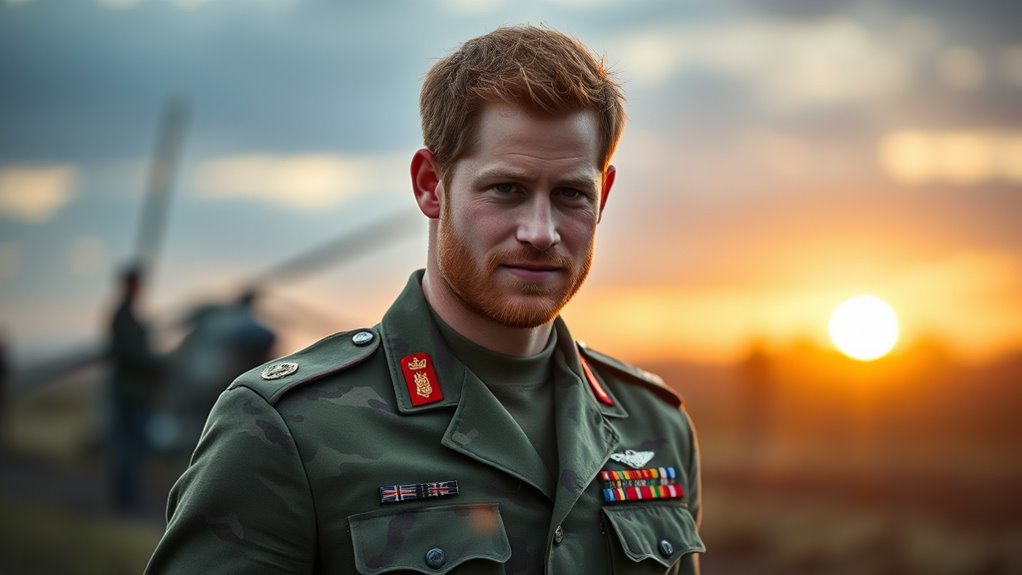
Serving a decade in the British Army from 2005 to 2015, Harry held roles that showcased his leadership and combat skills. You’d know he was commissioned as a cornet into the Blues and Royals, part of the Household Cavalry, after completing Officer Cadet training at Sandhurst. His duties included serving as a forward air controller and Apache helicopter pilot, achieving the rank of Captain. Over two tours in Afghanistan—first in 2007–2008, then in 2012–2013—you participated in combat missions, including coordinating airstrikes and piloting helicopters. During his second tour, he reportedly had 25 confirmed kills. His military service not only demonstrated bravery and skill but also fostered leadership qualities, which he carried into advocacy and charitable work supporting wounded veterans and military communities. Additionally, the military hardware and technology he operated, such as the Apache helicopter, are highly advanced and specialized, reflecting the technical expertise required for such roles.
Founding of the Invictus Games
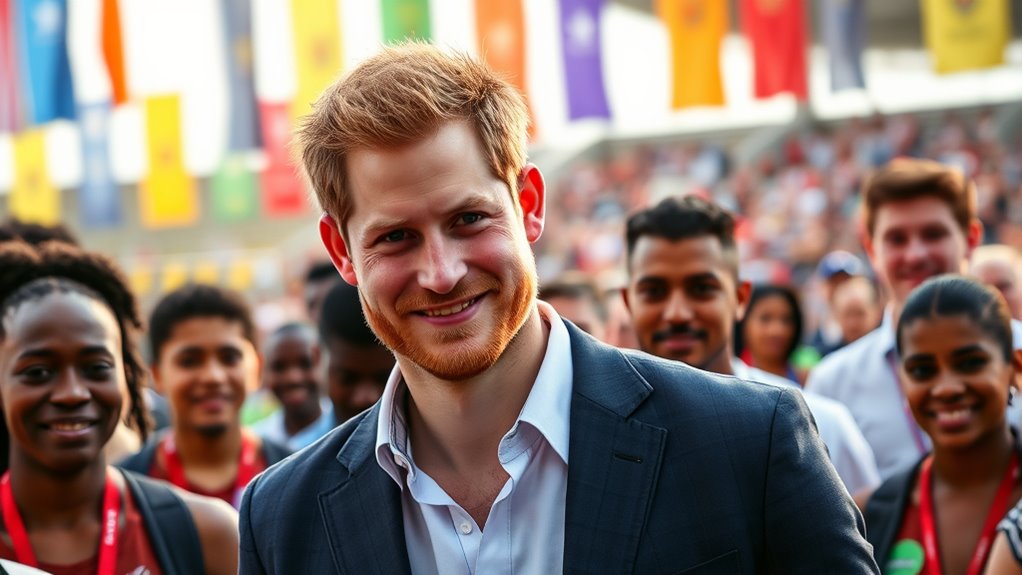
You should know that Prince Harry founded the Invictus Games after witnessing the positive effects of sport on wounded soldiers at the 2013 Warrior Games. This event grew from the idea of supporting recovery through international competition, with the first Games held in London in 2014. Since then, the Games have expanded globally, inspiring veterans and raising awareness about their resilience and rehabilitation. Enhanced natural language processing technologies could further improve how athletes and organizers communicate during these events.
Origins and Inspiration
What inspired the founding of the Invictus Games? During a visit to the 2013 Warrior Games, you saw wounded servicemen and women using sport for healing. The event revealed sport’s power to aid physical, psychological, and social recovery. This inspired you to create a larger international event that would build on this idea. You described the concept as “stealing” the Warrior Games to adapt and expand it globally. Imagine a table representing this vision:
| Healing Power | Resilience | Global Impact |
|---|---|---|
| Physical Recovery | Mental Strength | Societal Respect |
| Social Reintegration | Endurance | Inspiration |
This vision became the Invictus Games in 2014, celebrating resilience, courage, and the unbreakable spirit of wounded veterans. The success of the first Games demonstrated the significant role that sports can play in transforming lives and fostering international camaraderie, emphasizing the importance of resilience as a core value in recovery and empowerment.
Event Development and Growth
The founding of the Invictus Games marked a significant step in transforming the inspiring idea of sport as a healing tool into a global movement. In 2014, the Invictus Games Foundation was established to support wounded, injured, and sick service members through sport, with Prince Harry serving as Patron and founder. The first Games in London drew 300 competitors from 13 countries, and subsequent editions expanded to more nations, venues, and partnerships. Strategic reviews and leadership by CEO Rob Owen OBE helped refine the vision, while initiatives like the “We Are Invictus” app foster ongoing engagement. With increasing financial support and collaborations worldwide, the Games have grown into a respected platform promoting long-term recovery, resilience, and international camaraderie among wounded veterans. The Foundation also emphasizes mental and physical resilience through sport and community engagement, further strengthening its impact. Additionally, the development of specialized training programs ensures that participants gain skills that benefit their overall rehabilitation journey.
Impact on Veterans
How did the Invictus Games impact the lives of wounded veterans? You’ve seen how participating in adaptive sports boosts physical mobility and fitness, helping veterans recover and regain confidence. The Games foster psychological resilience, motivating injured service members to push beyond their limits. Being part of team competitions also creates camaraderie, reducing feelings of isolation and supporting social reintegration. The Foundation’s year-round programs and adventurous challenges extend these benefits well beyond the event itself, improving mental health over time. Plus, the Games strengthen bonds with families and communities, fostering inclusion and shared purpose. By promoting international participation and awareness, the Invictus Games restore dignity and pride in veterans worldwide, inspiring long-term recovery and societal change. The Games also demonstrate the power of sport in supporting physical and mental recovery of servicemen and women, emphasizing their ongoing need for support and recognition.
Mental Health Advocacy Through Heads Together
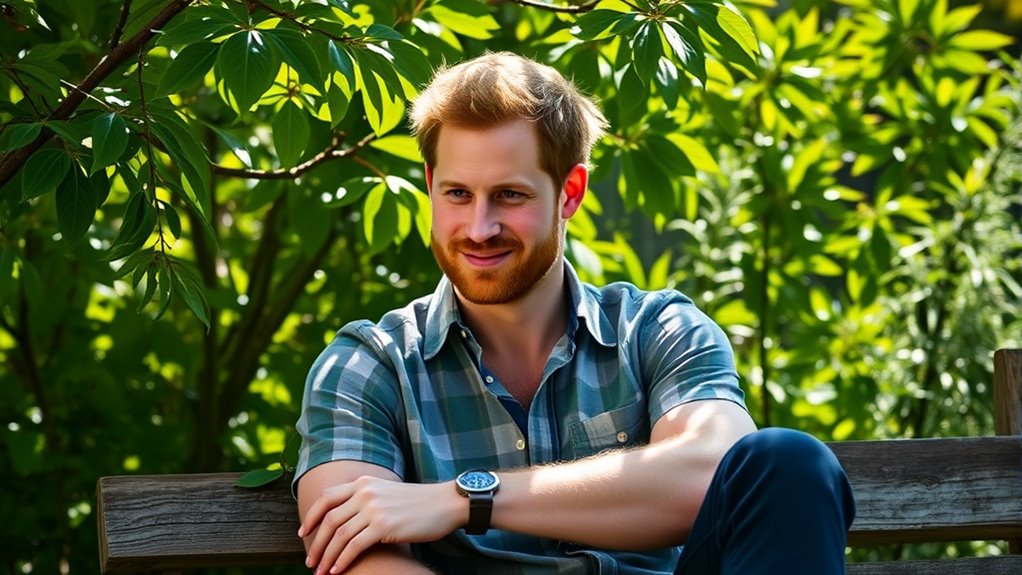
Have you ever wondered how a royal-led campaign can transform public attitudes toward mental health? When Prince Harry, along with the Duke and Duchess of Cambridge, launched Heads Together in 2016, they aimed to end stigma and spark open conversations about mental wellbeing. The campaign encourages people to address everyday mental health issues and support friends and family through difficult times. It’s the largest joint effort by the Royals, partnering with eight UK charities to cover youth, military, suicide prevention, and family support. The launch took place on 16th May at the Queen Elizabeth Olympic Park in east London. Through multimedia, social media (#oktosay), and events, Heads Together promotes openness and offers practical resources. Its legacy includes programs in workplaces and schools, fostering ongoing change and helping millions feel comfortable seeking help and talking about mental health. Building awareness and reducing stigma are key components of its mission to create a more understanding and supportive society.
Humanitarian Work and Charitable Foundations
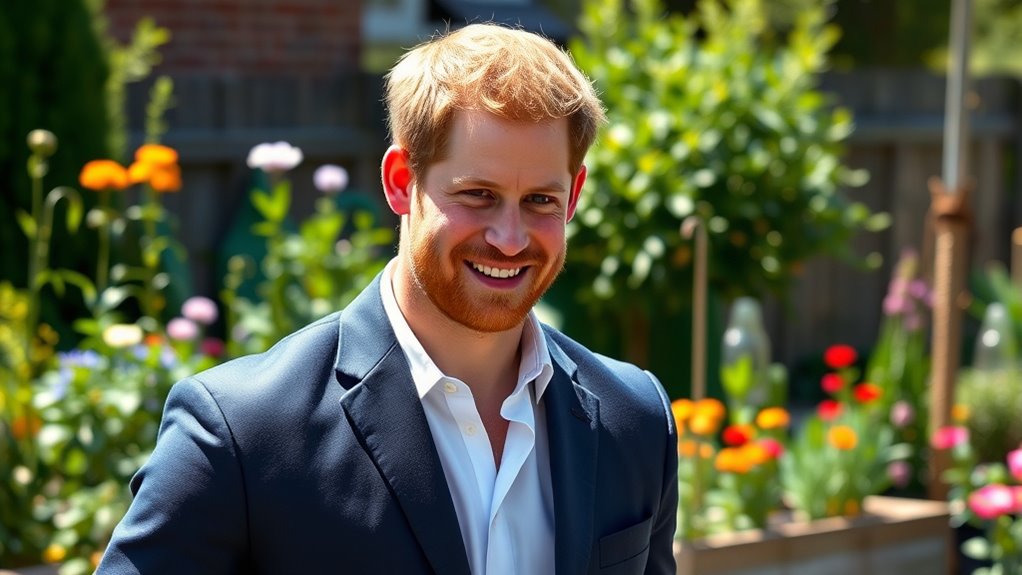
You see how Prince Harry’s Invictus Games have become a global platform to empower wounded military personnel through adaptive sports. His advocacy extends beyond sports, promoting mental health awareness and supporting recovery for veterans. These efforts highlight his deep commitment to humanitarian causes that make a real difference. Additionally, his co-founding of Sentebale demonstrates his dedication to supporting disadvantaged youth in Lesotho and beyond through charitable initiatives, further exemplifying his multifaceted approach to philanthropy. Recognizing the importance of skin care in overall well-being, he has also supported initiatives that promote self-care and mental health awareness.
Invictus Games Impact
The Invictus Games have considerably advanced Prince Harry’s humanitarian mission by raising awareness and fostering support for wounded veterans worldwide. The event’s economic impact in Vancouver-Whistler 2025 boosted Canada’s GDP by nearly $72.7 million CAD, creating jobs in hospitality and tourism. Over 125,000 spectators attended, with more than 900,000 Canadians watching live TV broadcasts, including the top-rated opening ceremony. The Games also generated approximately $18 million CAD in combined taxes and established a $5.5 million legacy fund to support veterans’ rehabilitation and social reintegration. Held in Canada, the event significantly increased international visibility for wounded servicemen and women. Globally, coverage reached millions, promoting awareness of wounded vets’ challenges and encouraging societal inclusion. This event also highlighted the importance of veterans’ rehabilitation programs in fostering societal integration. The table below highlights key impacts:
| Impact Area | Key Highlights | Outcomes |
|---|---|---|
| Economic Impact | $72.7M CAD GDP, job creation | Local growth, sustainability |
| Spectator Reach | 125,000 live spectators, 900,000 viewers | Increased awareness, visibility |
| Legacy Funding | $5.5M CAD dedicated to veterans | Long-term rehabilitation |
| Global Awareness | 800+ articles, international coverage | Humanitarian dialogue |
Advocacy for Mental Health
Prince Harry has become a prominent advocate for mental health, actively working to break down stigma and promote open conversations. You see him openly sharing his struggles with anxiety and depression, emphasizing that seeking help is a sign of strength. He champions therapy and professional support as essential for healing from grief and trauma. Through the Heads Together campaign, co-founded with Prince William and Kate Middleton, he encourages society to discuss mental well-being openly and challenge prejudices. Harry’s engagement extends to digital wellness initiatives, where he and Meghan connect with youth to address online pressures. He supports programs like The Diana Award, empowering young people to advocate for mental health, and pushes for accessible resources, aiming to normalize mental health care as a crucial part of overall well-being. Additionally, promoting mental health awareness helps to reduce stigma and fosters a supportive environment for those seeking help.
Transition From Royal Duties to Independent Initiatives
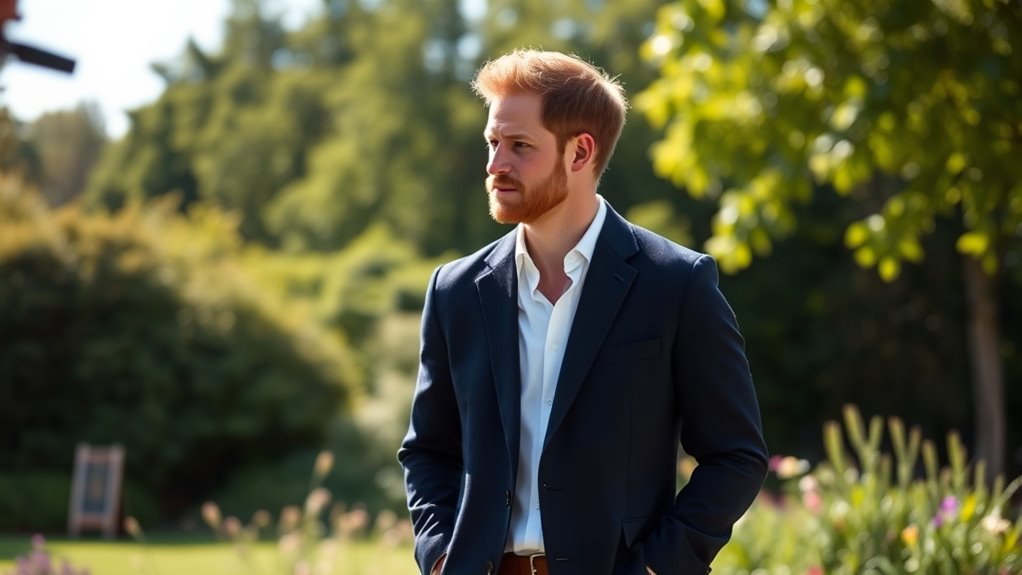
In early 2020, a formal agreement marked a significant shift as Harry and Meghan stepped back from their roles as working members of the British royal family. They no longer represented the Queen officially but retained their HRH titles, though they agreed not to use them in official or commercial contexts. They became financially independent, repaying public funds used for Frogmore Cottage, and stepped down from military appointments and royal duties. They planned to split their time mainly between North America and the UK, renting Frogmore Cottage commercially. They maintained some private patronages like the Invictus Games while launching new philanthropic ventures focused on mental health, veterans, and social justice through their Archewell Foundation. This transition allowed them to pursue independent initiatives, leveraging their profiles for global impact outside traditional royal constraints.
Public Presence and Media Engagement
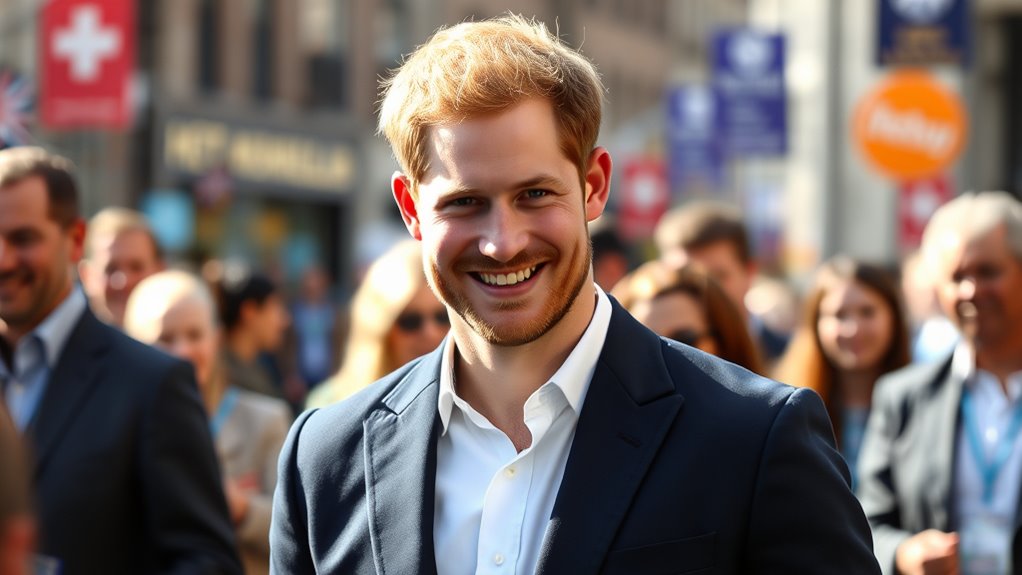
Since stepping back from royal duties, Harry has carefully managed his public presence and media engagement to shape his personal and philanthropic narrative. His first high-profile appearance was at a ServiceNow conference in Las Vegas, supporting a Diana Award youth initiative—marking a strategic return to the spotlight after intense media scrutiny. He frequently participates in events linked to his charitable work, though activity levels fluctuate. Harry’s involvement in media includes interviews like Oprah and the Netflix docuseries “Harry & Meghan,” which have sparked controversy and polarized opinions. His memoir “Spare” revealed intimate family details, straining royal relations. While he uses digital platforms to promote causes, his media efforts often attract mixed reactions, highlighting ongoing challenges in defining his independent role and public image. Additionally, his media strategy reflects a nuanced approach to managing public relations and maintaining relevance in a rapidly changing media landscape.
Continued Impact and Global Influence
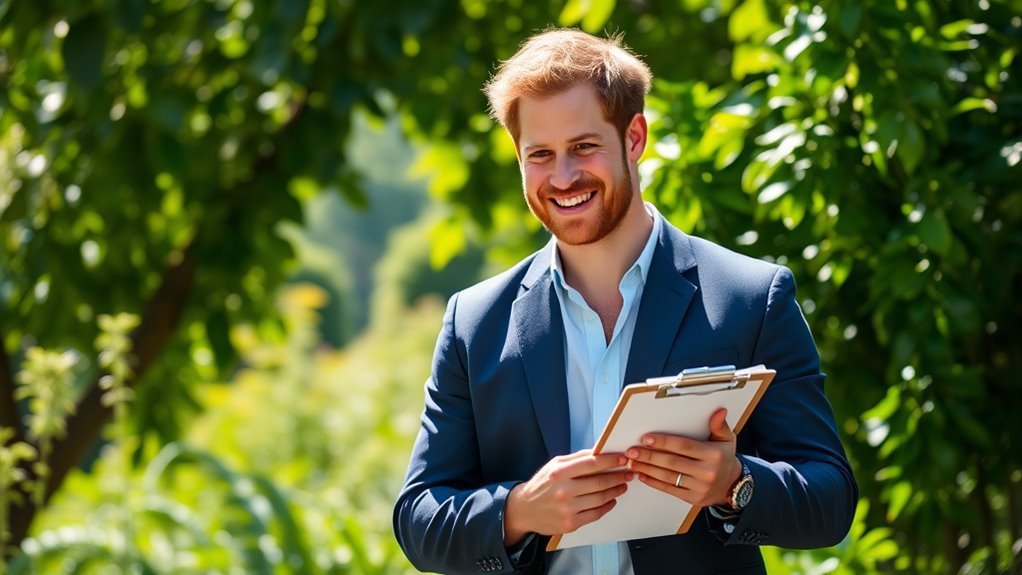
Building on his philanthropic and advocacy efforts, Harry continues to shape his global influence through innovative initiatives that integrate social impact with business strategies. He champions a dual approach that combines philanthropy and investment, focusing on root causes like mental health, climate, and equality. By promoting service-oriented models, he highlights how social impact can drive market growth and build trust. Harry’s leadership extends to global summits and grassroots collaborations, inspiring next-generation leaders and aligning efforts with the UN’s SDGs. Through the Archewell Foundation, he advocates for community-based solutions and digital safety. His military background fuels his work supporting veterans and promoting resilience through the Invictus Games. Overall, Harry’s influence fosters international cooperation, sustainable development, and a new era of purpose-driven social change.
Frequently Asked Questions
What Inspired Prince Harry to Focus on Mental Health Advocacy?
You’re curious about what drives someone to champion mental health. Personal experiences often inspire such passion. In this case, the loss of a loved one at a young age, coupled with struggles like anxiety and trauma, deeply affected him. Using his voice publicly, he wants to break stigma, encourage open conversations, and normalize seeking help. His journey shows how personal hardship can become a powerful catalyst for inspiring systemic change and supporting others.
How Does Prince Harry Balance His Military Background With His Philanthropic Work?
You know what they say, “Lead by example.” Your military background fuels your philanthropic work by giving you leadership skills, discipline, and firsthand insight into veterans’ struggles. By combining these experiences, you effectively advocate for mental health and veteran support. Your service-oriented mindset helps you bridge military and civilian worlds, inspiring others to support causes close to your heart, all while staying grounded in your values and commitment to service.
What Are Prince Harry’S Future Plans for His Charitable Organizations?
Your question about future plans for charitable organizations is insightful. You see that Prince Harry aims to deepen his mental health advocacy, expand efforts to combat social injustices, and strengthen environmental conservation projects. He plans to leverage his public profile and leadership roles to influence policy and societal change. While maintaining his focus on long-term, sustainable solutions, he continues to support causes both in the U.K. and globally, with a commitment to meaningful impact.
How Has Prince Harry’S Move to the U.S. Impacted His Humanitarian Efforts?
This question hits the mark—your curiosity about how Harry’s move to the U.S. has shifted his humanitarian efforts is spot-on. You see, relocating has expanded his reach, allowing him to build new partnerships, focus on American issues like mental health, and support local communities. His foundation now operates with greater transparency and agility, making his efforts more impactful than ever. The move truly transformed his ability to serve on a broader stage.
In What Ways Does Prince Harry Engage With His Children’S Education and Upbringing?
You prioritize your children’s education by choosing Montessori and IB programs that foster independence, global awareness, and eco-conscious values. You actively involve yourself in their daily learning, engaging in activities like gardening and running a mock farmer’s market to teach life skills, responsibility, and gratitude. You also emphasize outdoor exploration, practical skills, and emotional growth, creating a balanced environment that nurtures their curiosity, confidence, and sense of responsibility.
Conclusion
You’ve seen how Prince Harry’s journey from royal roots to global philanthropist shapes his legacy. With a heart as big as the Tower of London, he champions mental health, military service, and humanitarian causes, proving he’s more than just a prince. Like a modern-day Robin Hood, he’s making a difference worldwide. As you follow his story, remember: even in a world of kings and queens, true nobility comes from giving back and inspiring change.

